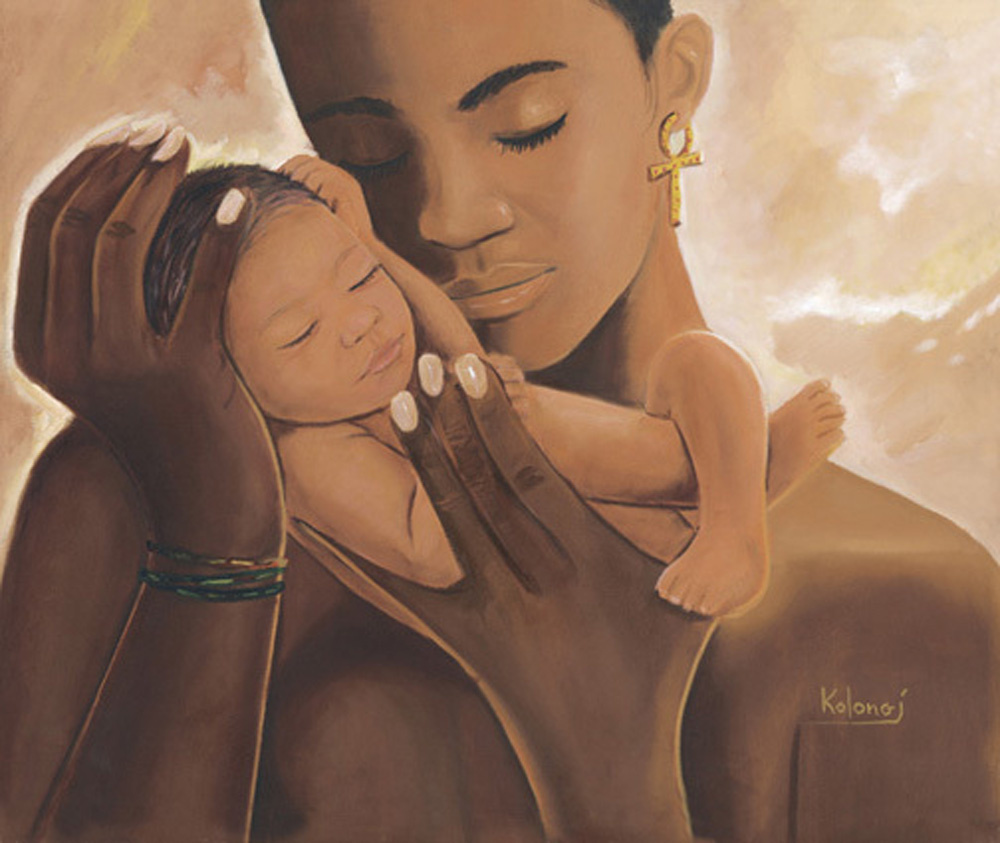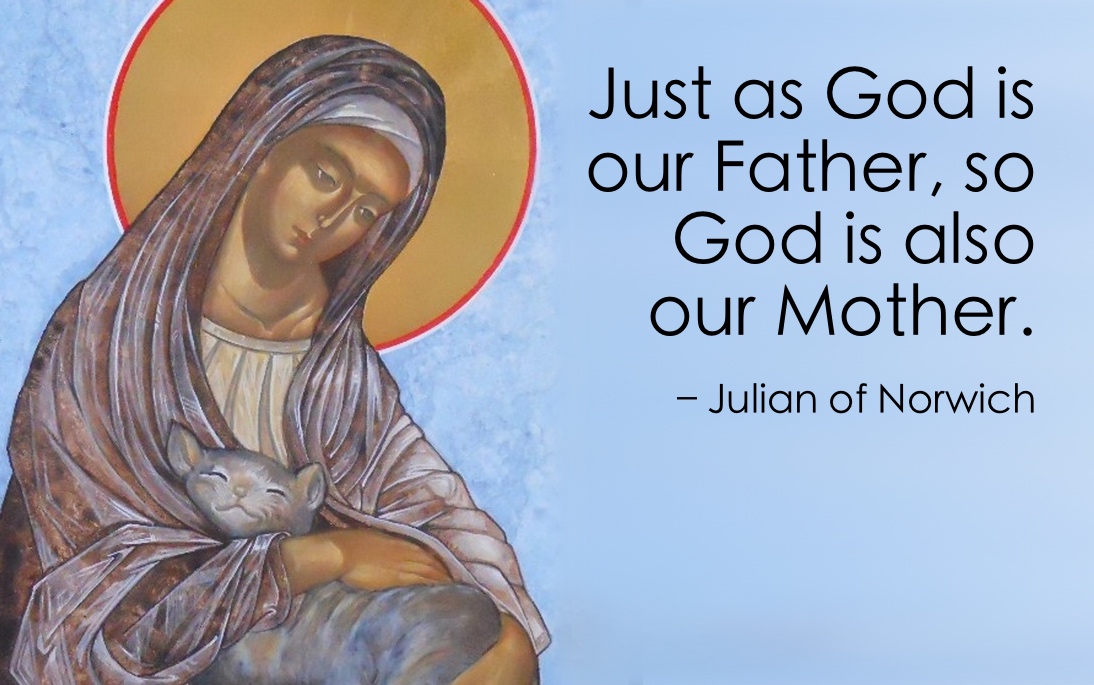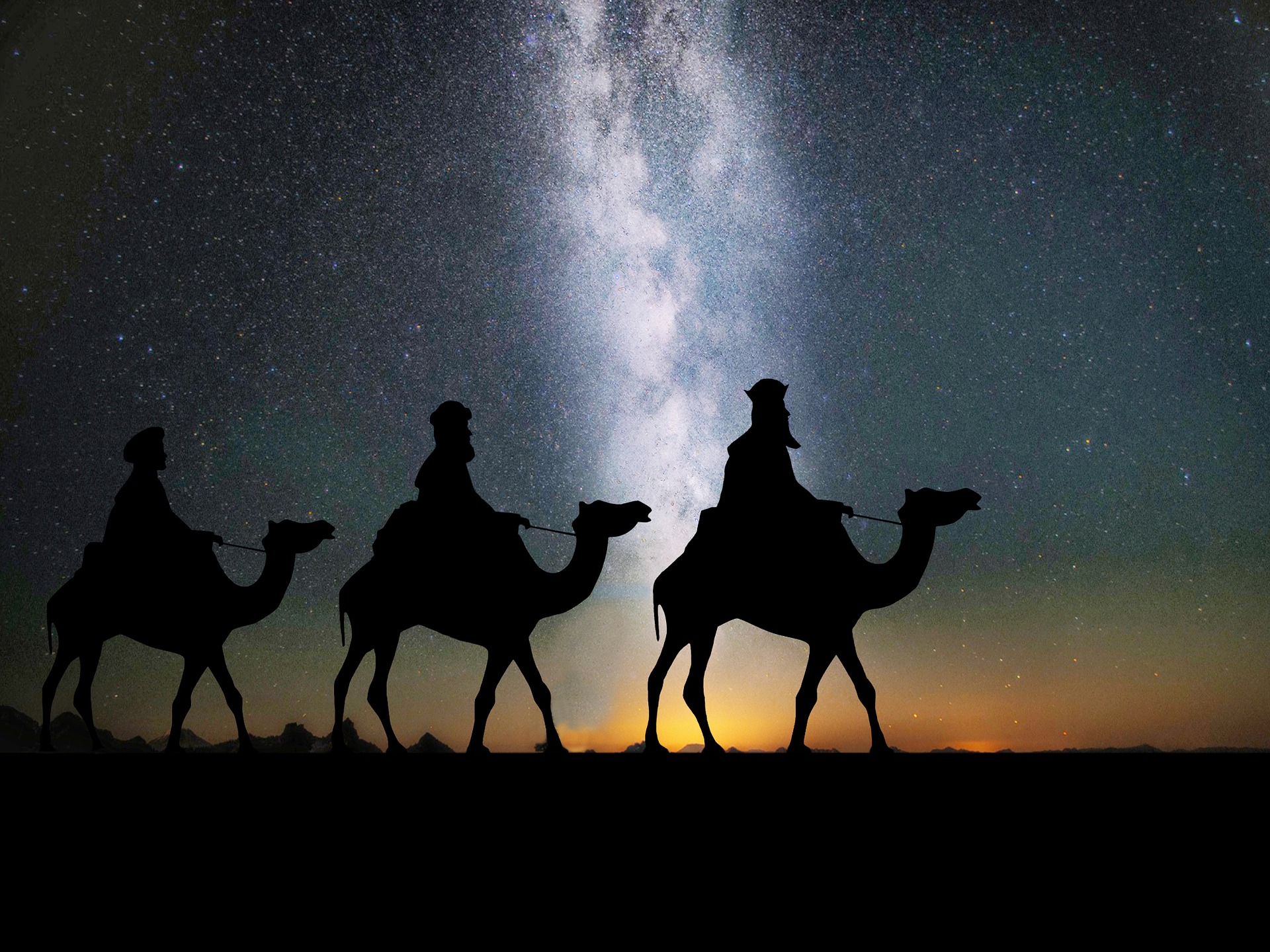 When you think of God what do you imagine? What does she look like in your mind’s eye? What is her role in your life?
When you think of God what do you imagine? What does she look like in your mind’s eye? What is her role in your life?
If hearing God described with female pronouns felt grating, you’re not alone. A few months ago I wrote a post called The Male God? which addressed biblical metaphors a bit and how we tend to find ourselves jarred by a non-male or non-father image for God. Our images of God are engrained in us at childhood and re-engrained with the images, scripture, and metaphors for God used and reused in our churches and homes. How we image God is critically important for how we relate to God. Do we see God as a firm but protective father or a gentle and life-giving mother? Is God a formless faraway object or an imminent friend or lover? Is your God white? Does he have a penis?
If you are finding yourself reject some of these metaphors, ask yourself why. We know intellectually that God has no gender, that God is infinite and transcendent and indescribable, but metaphors give shape to this transcendent God; they help us relate to the infinite and the eternal. Unfortunately the metaphor of God as “Father” or male is so a part of Western Christian culture that it leaves little room for other metaphors for the Divine. Patriarchal structures of history and those that exist today (in both church and secular society) preserve the dominant male metaphor, which appears in liturgy, creeds, and prayers. We call God “king” and “lord”. By themselves these metaphors can be wonderful and helpful for many in relating to God, but we lose sight of the myriad feminine and non-gendered metaphors throughout the scriptures.
The Catechism of the Catholic Church says, “In no way is God in man’s image. [God] is neither man nor woman. God is pure spirit in which there is no place for the difference between the sexes. But the respective ‘perfections’ of man and woman reflect something of the infinite perfection of God: those of a mother and those of a father and husband” (CCC, 370).
Recently The Liturgists, a group of Christian thinkers, artists, and musicians who present liturgical prayer experiences for groups (and via their podcast) had an event in Boston called God Our Mother. Through poetry, music, and conversation, they challenged our deeply rooted dominant metaphors, even playing with the pronouns used for God in well known hymns. It’s worth a listen if you’re open to letting yourself be challenged. It’s important to note that either masculine or feminine images for God are not bad. The qualities we associate with them are qualities God possesses. The problem is when masculine metaphors, which tend to be about domination, authority, control, and power, take over. Scholar Marcus Borg says, “The issue is not that mothers are better than fathers, but that a particular way of imaging ‘father’ can produce a distorted form of Christianity—as if Christianity is about meeting the requirements of an authority figure who will punish us if we don’t get it right.”
 It can be refreshing to see God as a mothering God who births us into creation, protects her children, carries them, weeps for them, exudes a compassionate strength, and delights in her children. Julian of Norwich even wrote about God as mother. What’s fascinating is that the Second Person of the Trinity, who came to earth as Jesus Christ, she calls Mother. She writes,
It can be refreshing to see God as a mothering God who births us into creation, protects her children, carries them, weeps for them, exudes a compassionate strength, and delights in her children. Julian of Norwich even wrote about God as mother. What’s fascinating is that the Second Person of the Trinity, who came to earth as Jesus Christ, she calls Mother. She writes,
Jesus Christ therefore, who himself overcame evil with good, is our true Mother. We received our ‘Being’ from Him and this is where His Maternity starts. And with it comes the gentle Protection and Guard of Love which will never cease to surround us.
God is Mystery. God is being itself. How have the images and metaphors you’ve tended to use for God affected your perception of who God is? How have they affected your relationship with the Divine?
Related posts and links:
- The Male God?
- God our Mother (a blog post by Erin Duffy Burke which offers many non-male metaphors for God and the background on biblical language)
- Excerpt from Julian of Norwich on the Vatican website
Listen to the podcast version of this post…









Writing as a non-catholic, I was interested to read the catechism’s comment that “…the respective ‘perfections’ of man and woman reflect something of the infinite perfection of God: those of a mother and those of a father and husband”
Why, I wonder, define the infinite perfection of God in terms of “mother” but not “wife” when both “father” and “husband” are used?
I suspect it’s that, in the eyes of the church and society, husbands are higher status than wives and therefore God can be husband to us but not wife. I suspect the image of “wife” conjures up an image of subservience and therefore isn’t perceived as applicable to God.
Hardly gender-neutral, is it!
Do you have any thoughts/comments?
PS protestant theologies are just as bad if not worse… it’s just that I’d not seen the catholic catechism before.
“The mask each man wears may well be a disguise not only for that man’s inner self but for God, wandering as a pilgrim and exile in His own creation. If we believe in the Incarnation of the Son of God, there should be no one on earth in whom we are not prepared to see, in mystery, the presence of Christ” Thomas Merton. Note that Merton says: “There should be no one on earth…” That must embrace all mankind, male and female.
God of the Christian Church,in human form, is Jesus, a male. Because we learn about Jesus in scripture, maleness is reinforced.I don’t think to start there in our understanding of God is wrong or needs to be changed but it would be wrong if our image of God stopped there. Our society has different definitions for each gender based on stereotypes. Our God transcends both. Reading scripture and engaging in a relationship with God forms our image which has both traditional male and female traits but on steroids. God should never be bound by any human definition. While I use the male personal pronouns (attributable to my cultural) it does not mean I see God as he. As I claim the love of God it is not gender specific. God is unconditional Love.
The Bible is the revelation of God to the world. We would not even know God or His Son Jesus Christ had He not revealed Himself to us through His book. We would not understand creation, our purpose, or our future had God not revealed those things to us in His book. Throughout His book, God self identifies with the male gender that He created. God never presents Himself as genderless or gender neutral.
I certainly agree that we cannot and should not put God in a box and try to limit Him to human definitions. “For my thoughts are not your thoughts, neither are your ways my ways,” declares the Lord.” (Isaiah 55:8) However, in His book, God has revealed to us all we need to know. The God who was powerful enough to speak the universe into existence without any pre-existing materials would certainly be capable of describing Himself as anything other than who He is, if He were something other than who He is.
I’ve heard modern day feminists argue that the Bible was written by men who naturally used male pronouns when referring to God and that’s why God is always referred to in the masculine. That position assumes the human scribes were writing their own personal thoughts and ideas under their own inspiration, rather than by the inspiration of the Holy Spirit. Paul wrote in his second letter to Timothy, “All Scripture is God-breathed and is useful for teaching, rebuking, correcting and training in righteousness, so that the servant of God may be thoroughly equipped for every good work.” Every word in the Bible is in the Bible because God is ultimately the author of the Bible.
In the Bible, God has revealed to the world His character, His nature, His divinity, His Lordship, and His great love for humanity through the death of Jesus Christ on the cross. God is our Father, His Son Jesus Christ is our Savior, and the Holy Spirit is our comforter. Do not get caught up in worldly thinking. “Yes, I know what the Bible says…..but I believe…….” “The Bible says this, but I prefer……..”
It doesn’t matter what we think or believe. God and His word are the ultimate and final authority.
Who can fathom the Spirit of the Lord,
or instruct the Lord as his counselor?
Whom did the Lord consult to enlighten Him,
and who taught Him the right way?
Who was it that taught Him knowledge,
or showed Him the path of understanding?
(Isaiah 40)
Will the one who contends with the Almighty correct him?
Let him who accuses God answer Him!”
(Job 40)
We need to know who God is according to the revealed word. And we need to know who we are in relationship to God.
God is Love & Spirit … Love is neither male nor female …. but something other all together … The closer we are to being Love … the closer we are to God in Human being. Just like Jesus Xx
Thank you all for your comments! Randy – You are indeed right that the Bible is the inspired Word of God, but God does not only identify as male. And we’re not speaking of Jesus, who was indeed a human male. There are plenty of female and gender neutral images in scripture. Wisdom is a feminine image of God, so is a mother hen (Matthew 23:37), or even a human mother (Isaiah 66:13). There are lots of genderless images like breath/spirit (pneuma), fire, light, or even Yahweh. This discussion is not about what we think or believe, but that scripture informs our belief. And scripture is full of male, female, and neuter images of God. That the Bible is the inspired word of God does not mean the same as God dictating words to be written. It means that Truth came through the lens, culture, and context of a particular time and the particular author – which would have indeed been patriarchal. We can’t blame the biblical authors. But, when we believe that just because they used a male pronoun for God means God chooses to identify as exclusively male, we have failed at reading God’s word.
When i was much younger, I saw God as that man with white hair, popping out of billowing clouds. I no longer feel that way. I guess I am not caught in placing a gender on God. To me, God is a pure spirit that i can no longer picture in my head. It doesn’t stop my quest for God in others.
Thank you Andy for your forthright conversation. Your work is much appreciated.